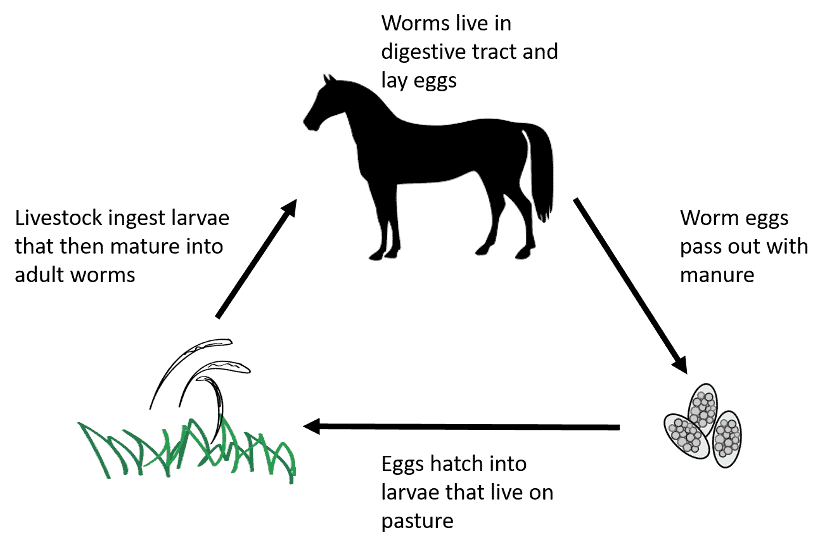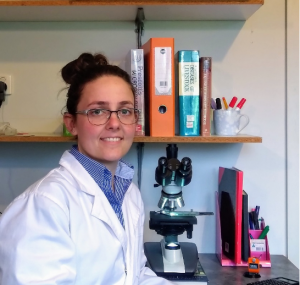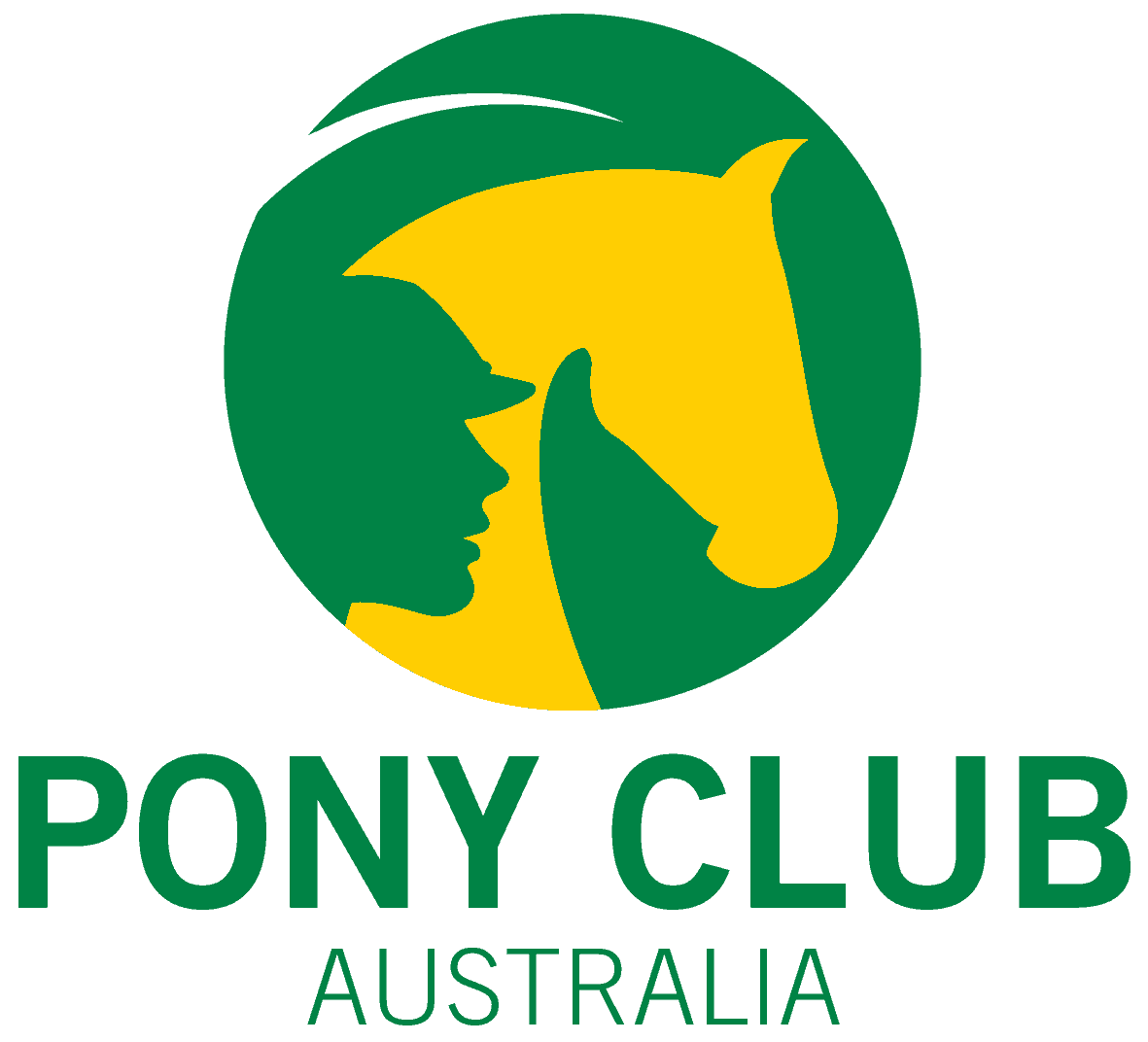Spring is the time for new life. But Spring isn’t all ducklings and foals: worms use the warm, wet weather (especially in southern states) as a key time to reproduce. The most common worms in horses are strongyle nematodes. These have a simple lifecycle (Fig 1), and have three life stages:
- Adults that live in the intestine and lay eggs
- Eggs that pass out in the manure
- Larvae that hatch from the eggs and develop on the pasture.
An important fact to remember is that of all the stages of the strongyles’ lifecycle, it is the larvae on pasture that make up the bulk of the population: 90% of all the worms are at the larval stage. Therefore 90% of worms are free-living on your pasture while only 10% of the population are the adults living in your horses. This means that managing you pasture is equally (if not more) important than managing the adult worms in your horses.
What does this have to do with Spring? Spring is a key time for strongyles. The amount of eggs shed in the manure can spike (leading to more larvae!) and the eggs can hatch and develop in as little as four days. Once developed the larvae can survive on the pasture for 6 months! Removing the manure from your paddocks is the simplest way of limiting horses’ exposure to infective larvae and reducing worm burdens. In warm spring weather, manure should be collected at least twice a week.
Collecting is also more effective than harrowing – harrowing will only spread the larvae around (remember, they can live for 6 months when there is moisture on the pasture).
In addition to cleaning your paddocks, make sure you identify the horses that are shedding lots of eggs via Faecal Egg Counts (FEC), and worm only those horses. For more information about egg shedding and FECs, see WormCheck’s FB page.

Figure 1: Lifecycle of strongyle nematodes in horses. Figure credit to WormCheck
Meet our Pony Club Australia Parasitologist:
Dr Jacqui Panozzo is a past Pony Club member, being a member of Drouin Pony Club (VIC) for over 10 years. She completed her PhD in parasite diagnostics in 2018 with a focus on strongyle nematodes of livestock. Jacqui is a graduate of the Sport Australia ‘Women Leaders in Sport’ program sponsored by Pony Club Australia. She runs her own company ‘WormCheck’ offering faecal egg counts to horse and other livestock owners, as well as teaching Biology and Animal Health at Federation University Australia.
For further information about horse and livestock parasites, follow WormCheck’s Facebook page.
